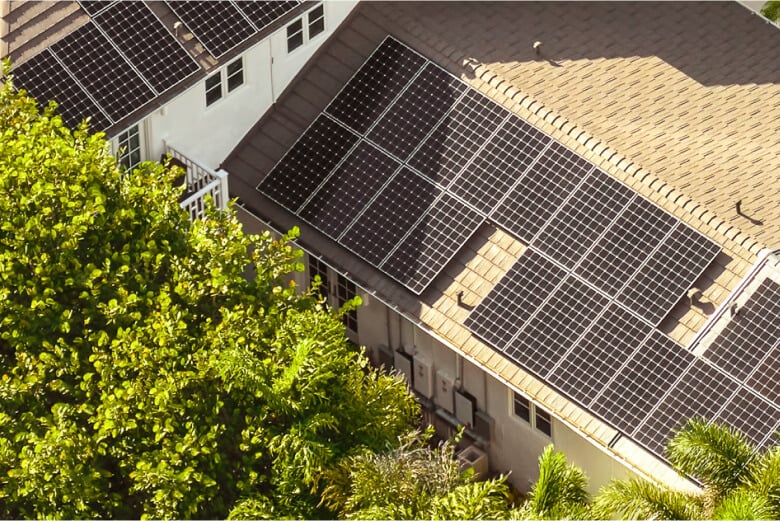
The Tech Council of Australia (TCA) has today (25 February) launched the Consumer Energy Tech Alliance (CETA), aiming to support the uptake of solar PV, battery storage, and smart technologies with its integration into the energy grid.
These technologies, often referred to as consumer energy resources (CERs), are increasing in popularity in Australia as households look to reduce their carbon footprint and generate their own electricity.
Try Premium for just $1
- Full premium access for the first month at only $1
- Converts to an annual rate after 30 days unless cancelled
- Cancel anytime during the trial period
Premium Benefits
- Expert industry analysis and interviews
- Digital access to PV Tech Power journal
- Exclusive event discounts
Or get the full Premium subscription right away
Or continue reading this article for free
Rooftop solar PV, for example, surpassed coal-fired power generation in Australia at the end of 2024, yet other technologies, such as home batteries, have staggered behind in adoption rates. The European Union achieved a similar feat last month, with solar PV accounting for 11% of EU electricity while coal fell to historic lows of 10%.
The CETA has been specifically established to help support households as they begin to accumulate these technologies and transform from consumers into energy producers.
According to TCA CEO Damian Kassabgi, this presents opportunities for increased renewable energy generation, greater reliability and lower energy prices.
“CETA is based on three key pillars: placing consumers at the heart of the energy transition; lowering power prices and increasing system reliability; and ensuring a fair and competitive environment for Australia’s energy technology innovators,” Kassabgi said.
“As renewable energy adoption grows, there needs to be stable, efficient, and affordable integration into the grid. CETA champions a balanced approach, combining innovation with system security so that Australia can realise the full potential of its CERs.”
CETA’s founding members are Brighte, Reposit Power, eLumina Global, Evie Networks, Neara, SNAPI, MyPlace, CATCH Power and Smartizer.
VPPs to compete directly with large-scale generators in Australia
As mentioned by the TCA, CERs and virtual power plants (VPPs) are increasingly coming under the spotlight in Australia, primarily with the ways these technologies can support the energy transition and grant grid stability.
Indeed, the Australian Energy Market Commission (AEMC) released a final determination in December 2024, enabling VPPs to compete directly with large-scale generators in Australia’s National Electricity Market (NEM). The NEM covers Australia’s eastern states, including Victoria, New South Wales, South Australia, Queensland, the Australian Capital Territory (ACT), and Tasmania.
Under the final determination, VPPs, commercial and industrial demand response, and aggregated batteries will be able to compete directly with traditional power stations from May 2027. Incentives for those looking to participate will be available from April 2026 with AU$50 million (US$31 million) up for grabs.
The reforms create a new “dispatch mode” that allows retailers to bid these resources into the wholesale electricity market.
AEMC chair Anna Collyer described the new final determination, which was first proposed the reform in July 2024, as “like giving the electricity system a pair of glasses”.
Katherine McConnell, CEO of Brighte and a founding member of CETA, believes that robust regulatory frameworks and technical standards are needed to support the energy sector’s long-term stability and sustainability.
“We’re committed to working with government and consumers to make sure technology plays a critical role in building a more efficient, inclusive energy system for all Australians,” McConnell said.
“CETA provides a unified platform where energy technology companies have the opportunity to help shape energy policy and foster an ecosystem where big ideas and collaborations thrive.”






